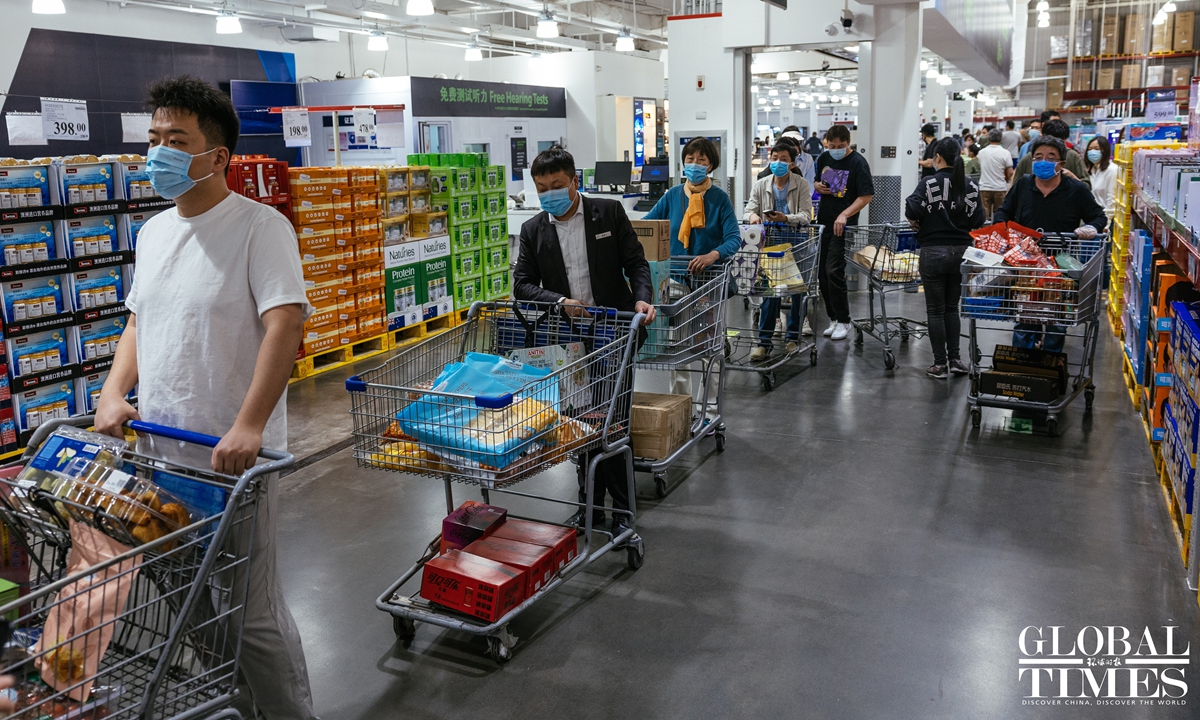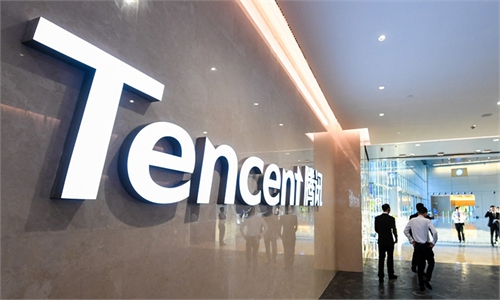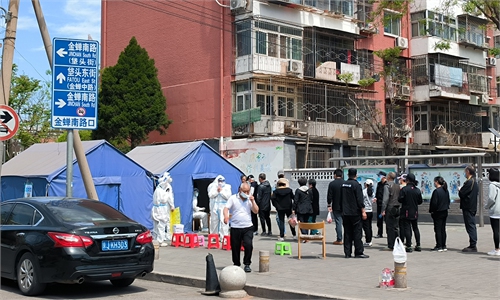
Beijing residents shop groceries in preparation for potential lockdown.Photo:Li Hao/GT
Chinese e-commerce and logistics platforms, including JD.com, Meituan and Cainiao, have taken measures such as increasing inventories of essential products by three to five times in Beijing to ensure sufficient supplies and stable prices in the face of surging demand amid an abrupt COVID-19 resurgence.
JD.com said on Tuesday that its supermarket has increased stocks of food such as bread, pre-made meals and meat by more than five times the usual amount, while inventories of daily necessities like home cleansers and baby products have grown by three times.
JD.com has cooperated with supermarkets like Walmart and Yonghui Superstores, as well as food brands Yili and Sanquan Food, to increase inventories to five times the usual amount, according to a press release issued by the company.
To meet surging orders online, JD Logistics has set up an emergency mechanism covering stock, sorting, transport and delivery, with over 1,000 staff and 2,000 vehicles in place to guarantee smooth deliveries throughout Beijing, the company said.
More COVID-19 cases have been detected across some districts in Beijing, and residents in the capital, particularly in Chaoyang district where most cases have been detected in the latest outbreak, have flooded supermarkets to stock up on food, drinks and other necessities over the past two days.
According to food delivery platform Meituan, the number of orders in Chaoyang district jumped 117 percent over the past two days compared with last week.
Meituan said in a press release sent to the Global Times that it would ramp up support for epidemic-hit restaurants by increasing online supplies for Beijing residents. The number of delivery staff has increased by 60 percent to cope with rising orders from supermarkets on the platforms.
Alibaba-backed logistics platform Cainiao told the Global Times on Tuesday that it has launched an emergency response plan by ensuring deliveries to Beijing residents via two large logistics parks in Shunyi district and Wuqing in North China's Tianjin Municipality.
The two parks are now in full operation, with the number of daily packages handled surpassing 200,000, Cainiao said. Meanwhile, its unmanned delivery devices carry out contactless delivery on college campuses to avoid transmission of the virus.
Fresh Hema said that all of its 40 membership stores in Beijing are well supplied and have allocated more than 200 tons of daily foods at direct sourcing bases in East China's Shandong Province and North China's Hebei to increase supplies.
The overall stocking of groceries has been increased to four to five times the daily amount, with prices remaining stable.
Beijing authorities vowed on Monday to ensure stable supplies of food and other goods to help residents better cope with the latest flare-up. The local government told supermarkets and fresh online platforms to increase their inventories of essential goods to over three times normal levels.
On the same day, local market regulators held a conference, vowing to strengthen enforcement and severely punish illegal behavior such as price gouging, hoarding and speculation, especially on e-commerce platforms.


